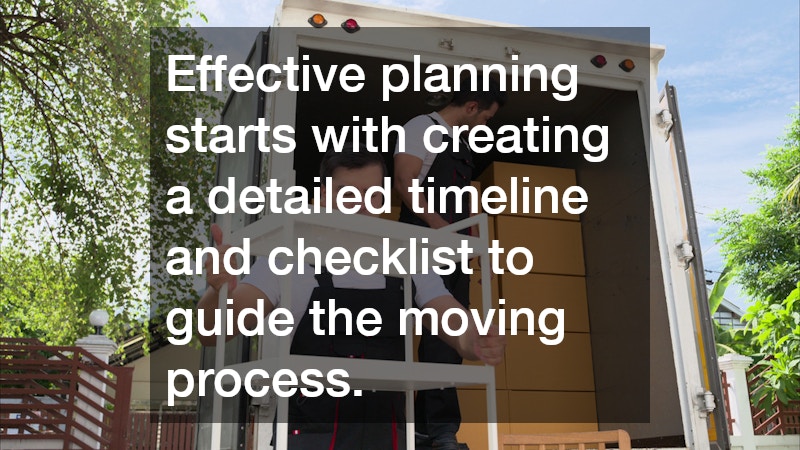This article explores how to find cost-effective and efficient local mover solutions for households of all sizes, focusing on understanding pricing mechanisms, recognizing trusted service providers, and optimizing the moving process. Relocating can be a daunting task, but with the right approach, it can be handled smoothly and affordably. By focusing on smart budgeting, selecting the right moving partners, and organizing efficiently, households can move without the stress of overspending or disorganization.
The Importance of Budgeting for a Local Move
Understanding Moving Costs
The process of moving involves various cost factors that can significantly impact your overall budget. Everything from the distance of the move, the weight of your belongings, and additional services needs to be factored into your finances. Understanding these elements can help you create a realistic budget that prevents unexpected expenses.
Finally, understanding these moving expenses allows you to make informed decisions when selecting between different service providers. Considering these elements aids in devising a strategy that aligns with your financial capability, ensuring a balanced approach to moving. Furthermore, households must evaluate these factors in the context of their unique needs and circumstances.
Creating an Efficient Moving Budget
Creating an efficient moving budget involves careful and detailed planning to ensure coverage of all anticipated expenses. A thorough inventory of all household items can provide a clearer picture of what needs to be moved and the associated cost. It is also wise to incorporate a contingency fund to accommodate unexpected expenses that can arise during the move.
Researching average local moving costs provides a benchmark to compare with quotes you receive from moving companies. This allows you to set a realistic expectation and prevents overspending. Moreover, categorizing your budget into sections like packing materials, labor, transportation, and additional services allows for a systematic approach to budget allocation.
Tracking your spending throughout the moving process is crucial to stay within your budgetary limits. Many people find moving apps and spreadsheets helpful in this regard, providing a visual representation of where your money is going. By keeping a keen eye on your spending, you ensure financial discipline during the chaos of moving.
Selecting the Right Local Moving Service
Researching Moving Companies
Choosing the right local moving service begins with conducting thorough research. Starting with online reviews and customer testimonials provides insights into the reliability and efficiency of potential movers. Engaging with friends and family for recommendations can also guide you towards trustworthy and professional services.
It is crucial to identify if the moving company specializes in specific types of moves or has knowledge of the local area, which can be advantageous. Finding a local mover who understands the nuances of the community and its regulations can prevent procedural issues. A company’s reputation within the local industry often reflects its capability to meet customer needs effectively.
Comparing Quotes and Services
Analyzing and comparing quotes from different local moving companies is essential to making an informed choice. When evaluating quotes, it is important to look beyond the cost and focus on the services offered. This ensures a comprehensive understanding of what is included in the estimate and whether additional fees may apply later on.
Choosing a local mover involves weighing affordability against service quality, finding a balance that suits your budget and requirements. Reading through reviews and requesting further clarification if something in a quote is unclear can aid in making the right choice. Engaging with the companies and asking questions about their pricing ensure a comfortable move without last-minute complications.
Planning and Preparing for an Efficient Move
Creating a Timeline and Checklist
Effective planning starts with creating a detailed timeline and checklist to guide the moving process. Assess your personal schedule, including work commitments, to identify the best date for your move. By developing a moving timeline, you can compartmentalize tasks such as packing, hiring movers, and getting utilities sorted out ahead of time.
Organizing and Packing Efficiently
Techniques for efficient packing can streamline the overall moving process and optimize time and space utilization. Begin by systematically categorizing items from essentials to those less frequently used to ensure an orderly packing process. Utilizing well-organized labeling provides clarity upon arrival at the new location.
Coordinating the Moving Day
Successfully coordinating moving day logistics creates the foundation for a smooth transition to your new home. Confirming dates, times, and specifics with your movers ensures everyone is aligned for a timely execution. Keeping an open communication channel with your movers helps navigate any last-minute changes or emergencies.
In conclusion, the significance of planning, choosing the right movers, and maintaining a realistic budget cannot be overstated for an affordable and efficient relocation. By understanding the various cost factors and exploring cost-saving strategies, households can relocate without exceeding their budgets. Selecting reputable movers and organizing the moving day efficiently reduces stress and ensures a seamless transition to a new home.

